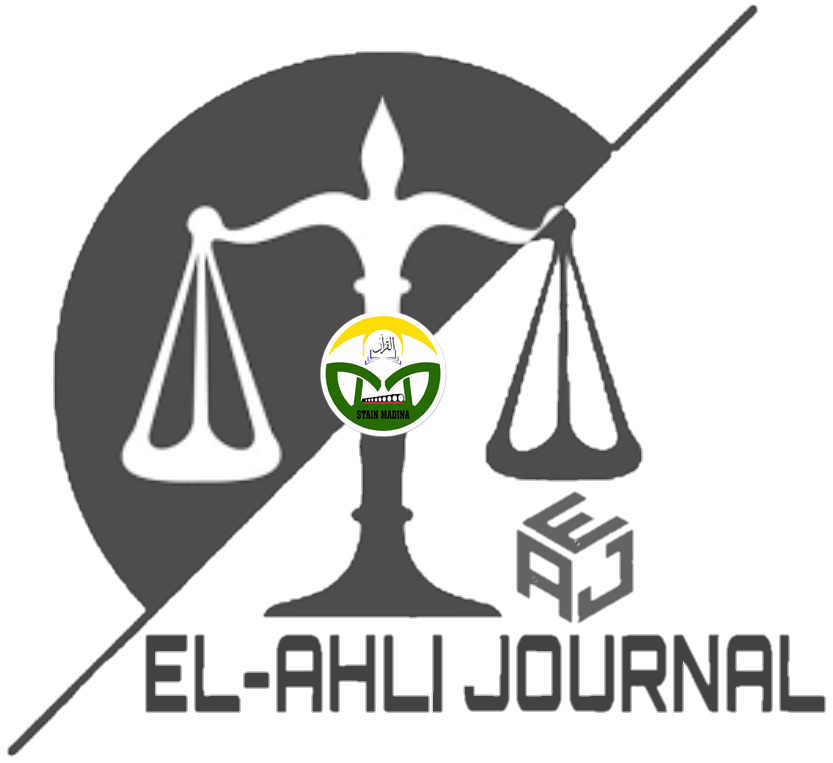PEER REVIEW PROCESS
EL-AHLI: Journal of Islamic Family Law is published twice a year, in July and December. All articles are published through a peer-review process conducted by the Board of Editors and Reviewers, both internal and external.
The peer-review process begins with an initial evaluation concerning the fulfillment of the Author Guidelines and conformity to the journal template, carried out by the Board of Editors (internal and external). Editors with an established academic track record are responsible for carefully examining and ensuring that the manuscript under review complies with the Author Guidelines and the Journal Template. Subsequently, the editor provides an assessment by completing an evaluation form. If the manuscript does not meet the Author Guidelines or Journal Template, the editorial team returns it to the author for revision in accordance with the comments of the Board of Editors.
As part of the editorial review process, a similarity check is conducted using Turnitin. Manuscripts that have passed this stage are then forwarded to reviewers. Editors are responsible for sending manuscripts electronically to reviewers, both internal and external.
The peer review conducted by internal and external reviewers focuses on assessing the substance of the manuscript, providing constructive feedback and comments regarding the state of the art as well as other relevant substantive components. The review is carried out under a single-blind review system, with gradual implementation of Double anonymous peer review. The process is conducted ethically, focusing on the substance of the manuscript. Criticism of the author personally is considered unethical and inappropriate in this journal’s review process.
Reviewers are required to provide clear, well-argued feedback, supported by sound reasoning. They are tasked with thoroughly identifying the relevance of legal documents, concepts, theories, and prior studies used by the author in analysis. Reviewers are also responsible for identifying relevant sources or studies not yet cited by the author.
The entire review process is conducted electronically. Upon completion of the peer-review stage, the Journal Editor makes the final decision regarding publication, taking into account the initial evaluation by the editorial team, the validity of the manuscript based on reviewers’ assessments, as well as the utility and contribution of the manuscript to the advancement of legal scholarship for researchers, academics, and practitioners—particularly with respect to the development of legal substance at the local, national, and international levels.
The final stages of the peer-review process are acceptance, copyediting, and publication.





